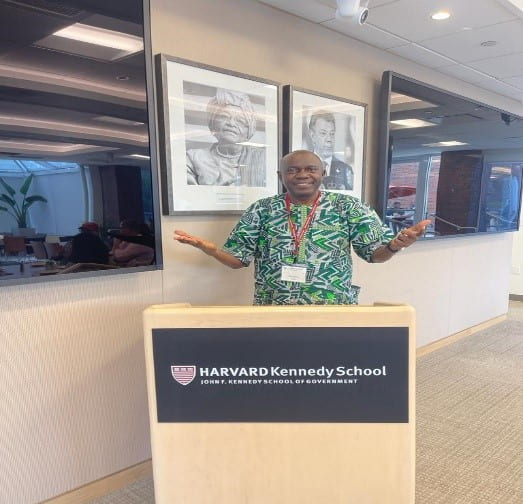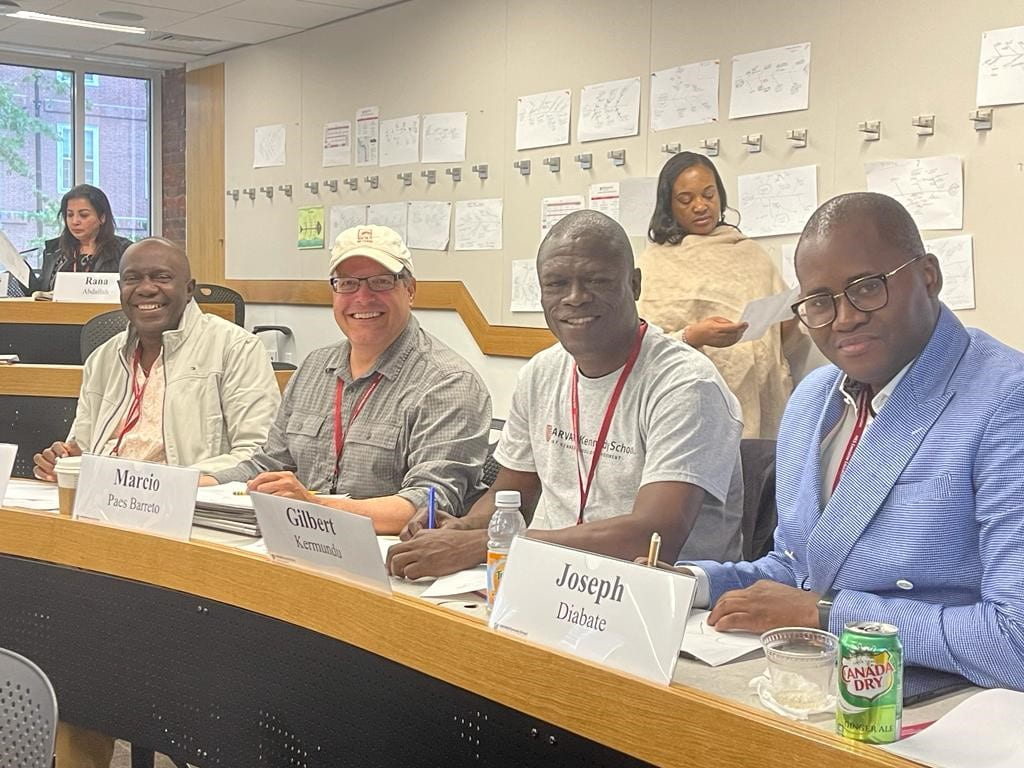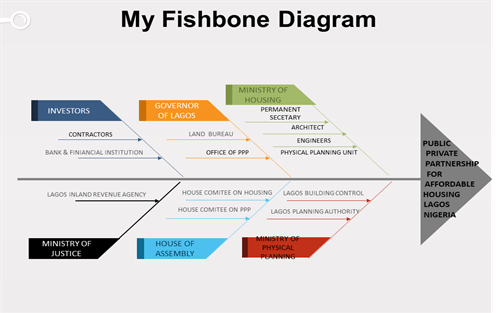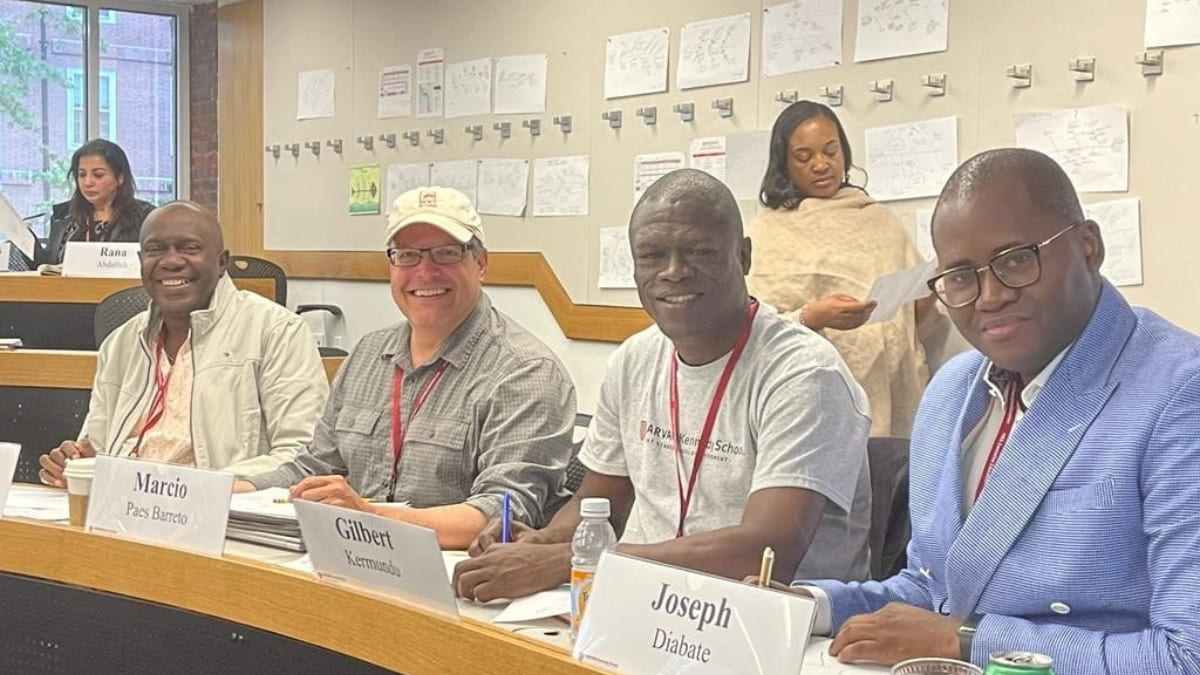Guest blog by Akinderu Fatai Moruf, IPP’23
In 2019, I was privileged to assume the role of Commissioner of Housing in Lagos State, the commercial capital of Nigeria with a large population of about 23 million. I was entrusted with the pivotal task of spearheading strategic initiatives to facilitate the expansion of affordable housing. Apart from the fact that there were lots of either abandoned or ongoing projects. There are lot of gaps in the supply of housing units especially for the low-income earners.
We had to attempt to show that we were determined to keep our campaign promises to be able to stay in power for us to meet the long-term objective in reducing the gap. We immediately escalated activities by making sure we commission our numerous schemes across the State. By early 2023, we have already commissioned 15 housing schemes with about 4000 units of flats. While about 3500 units are still on going. The Governor also approves that we created a rent to own program after certain element of subsidy are imputed. They are specifically for low-income earners. However, these numbers are far too low for what is needed. Lagos needs to build at least 10,000 units in the next four years. Yet the budget for housing is getting lower year in year out.
Committed to achieving success, my initial step was identifying the challenges at hand, leading me to enroll in the “Implementing Public Policy” course. This course served as my guiding compass, offering essential insights as I embarked on this transformative journey.

The IPP model emerged as a cornerstone in my understanding of the challenges associated with affordable housing expansion. It provided a comprehensive comprehension of the problem, aiding me in identifying key stakeholders and anticipating potential challenges in pursuing this vital public policy goal. I gained insights into various challenges that commonly contribute to policy failures, particularly issues related to delegation, enhancing delegation relationships, effective time management, understanding leadership is not just about authority and the importance of experimenting with various techniques to foster adaptability.
Implementing one of the techniques recommended by the IPP model resulted in a significant result in implementing my policy. Optimizing time utilization allowed us to achieve more efficient results. Additionally, fostering a robust delegation relationship between myself and the team prompted a comprehensive reassessment of our priorities.
The on-campus experience remains a lasting memory for me. I had the privilege of meeting people from different corners of the world, and together, we collaborated as a team to exchange knowledge and experiences. The support from my group members, especially in my interactions with this special individual, had a significant impact. We deliberated, communicated, and engaged with understanding, creating an environment where ideas were freely shared, and everyone was actively included, leaving no one behind. The peer learning group sessions were both fun and insightful, transforming the course into a hands-on experience while working on my policies.

This collaborative effort shed light on the effectiveness of the fishbone diagram in identifying key individuals involved in policymaking. The Triple A framework—Authorization, Acceptance, and Ability—proved particularly enlightening. Armed with this understanding and empowered by these insights, I could clearly identify my next steps and immediately initiated efforts towards them.

The PDIA (Problem-Driven Iterative Adaption) toolkit, has been introduced to my team, became a crucial resource for reflecting on our steps while solving problems.
With the experience gained from this course, I can confidently say that my team and I have made significant progress in expanding our knowledge and understanding the various challenges in the provision of affordable homes in Lagos. We have been able to stop the decrease in funding as all our authorized now understand why we must increase the number of units that we have to build. We have also expanded the scope of our engagement with the private sector. Financial institutions are not partnering with us to the extent that some are swing it as part of their CSR.
The Harvard Kennedy School’s Implementing Public Policy course is one I highly recommend to anyone involved in or planning to work on a policy. It has made our job easier, and we celebrate small wins and everybody in the team feels important and needed.
Our authorizers are also in full understanding on how to how to assist us in meeting up with our challenges.
This is a blog series written by the alumni of the Implementing Public Policy Executive Education Program at the Harvard Kennedy School. 47 Participants successfully completed this 7-month hybrid program in December 2023. These are their learning journey stories
